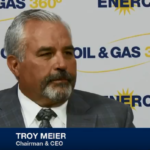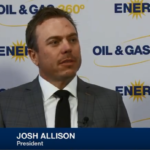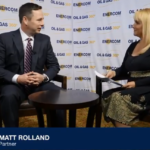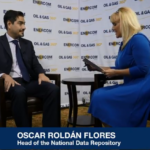Range presents at EnerCom’s The Oil & Gas Conference®
Range Resources (ticker: RRC) is an exploration and production company headquartered in Fort Worth, Texas.
Range’s net production for Q2 2018 averaged 2,200 MMcfe per day, consisting of 1,495 MMcf/day of natural gas, 104,219 barrels per day of NGLs, and 13,301 barrels per day of condensate and oil. This makes Range one of the top 10 natural gas producers in the U.S. and a top three NGL producer amongst E&P companies.
Q2 highlights
- Production averaged a record 2,200 MMcfe per day, an increase of 13% YOY
- Liquids production averaged 117,520 barrels per day, a 12% increase YOY
- Pre-hedge NGL realizations were $23.69 per barrel, a 63% increase YOY
- Pre-hedge crude oil and condensate realizations of $63.07, a 45% increase YOY
- Cash from operations of $175 million, and non-GAAP cash flow of $237 million
- Net loss of $80 million ($0.32 per diluted share), non-GAAP net income of $50 million ($0.20 per diluted share)
Breakout session at the EnerCom conference
During Range’s breakout session at the 2018 EnerCom conference, management was asked the following questions:
- Could you talk about further consolidations in Appalachia and Marcellus? Does it happen; is it necessary?
- Can you guys talk about some of the uplift you’re getting on some of your recent wells as being able to hit a better landing zone going back to areas you’ve drilled previously; you were talking about 18,000-foot laterals; is the geosphere such that, even at the toe of that you are still perfectly fine?
- In terms of production levels: Could you talk about sensitivity of cashflow with oil prices being high or low within your 5 year outlook?
- How do you weigh your exposure to in-basin pricing for the Marcellus and assets of external markets? Where do you see yourself in best pricing?
- Can you speak to visibility in terms of sand and water prices, and their logistics?
- Could you talk about the visibility in the gas processing capacity in the Range basin?
- Could you talk about leverage metric for shareholders?
- What can we expect from the outcome of new wells?
- Just relating to north Louisiana; if investors look at public well data what kind of risks can they expect?
- Could you comment on your social reasonability with environmental practices?
- Can you also talk about your potential asset sales in SW and NE Pennsylvania?
- What would you be willing suffer in terms of cost of development rights for other areas in Pennsylvania?
- Regarding super long wells, are they equally effective in phase window from wet fuel to dry gas?
You can listen to Range’s presentation here.







